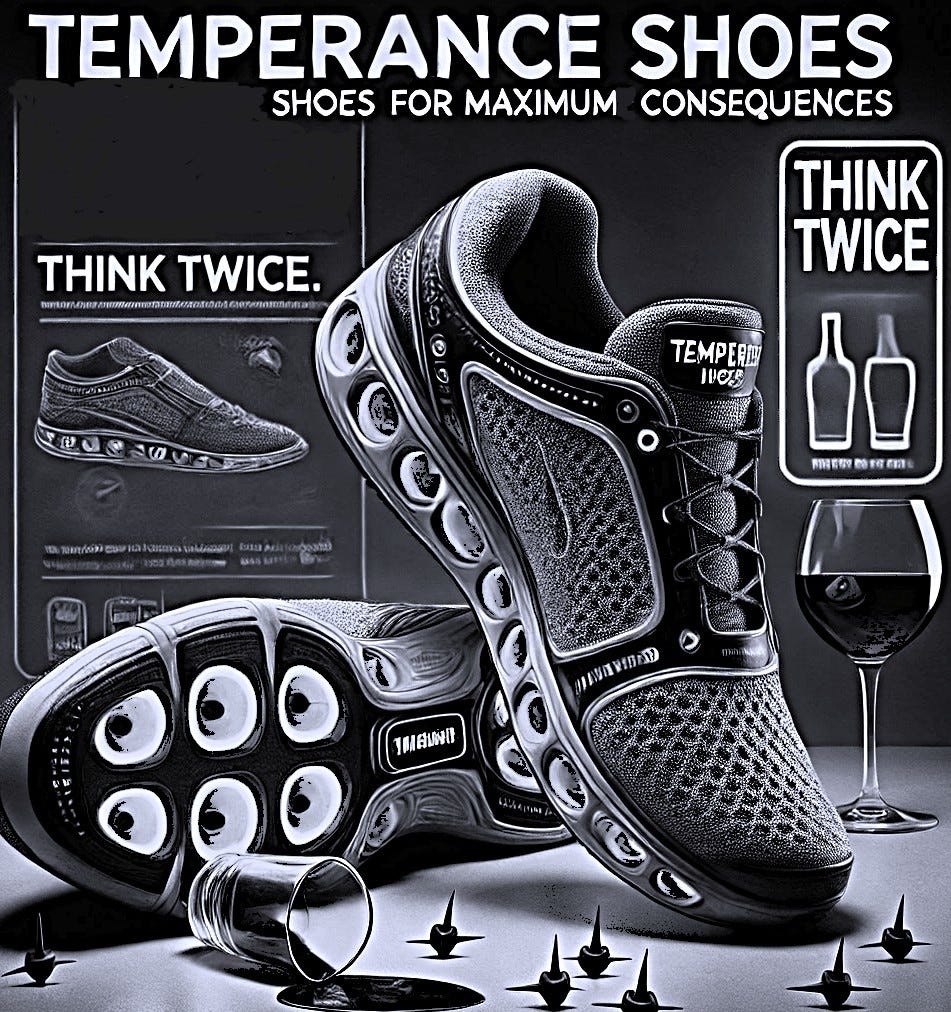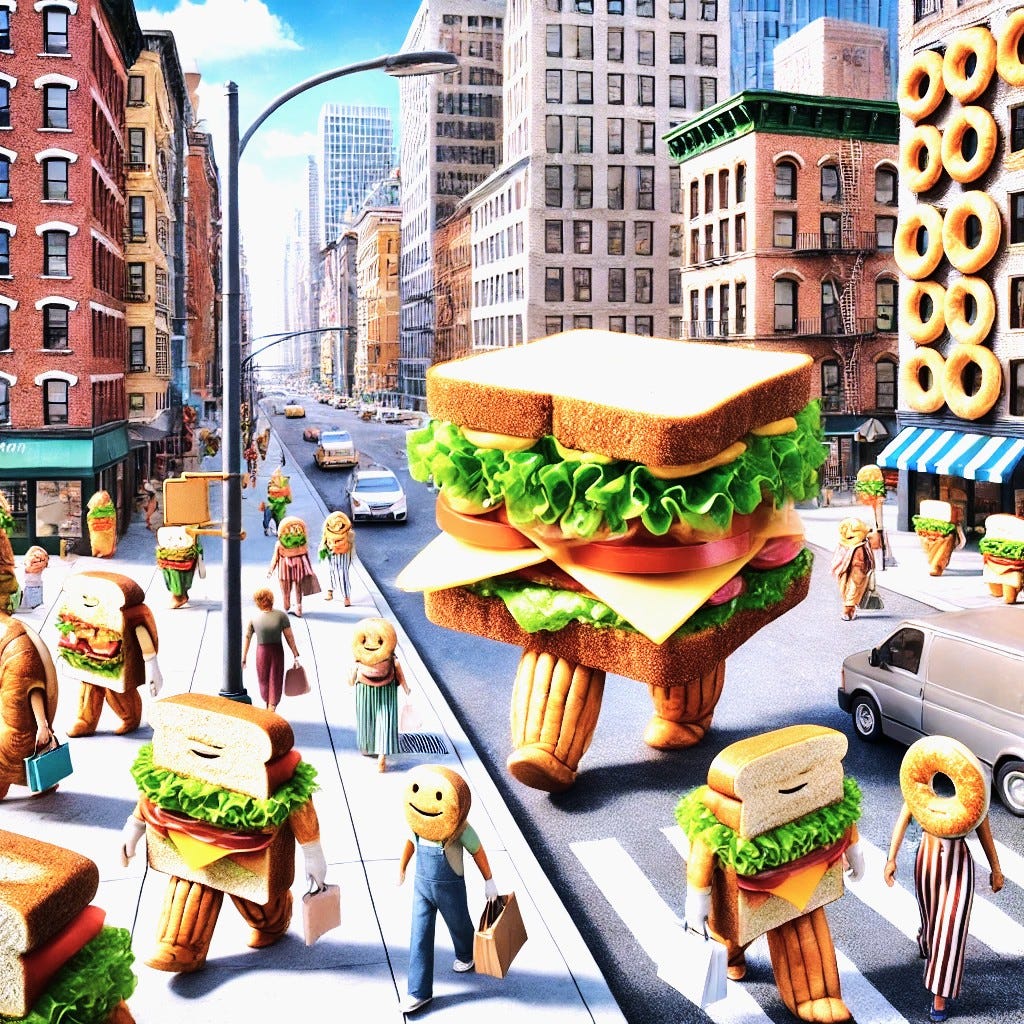YAM! The Year of Abstinence Movement
Why Dry January just isn't enough
Why stop at Dry January when you can embrace a whole year of virtuous living?
Introducing Y.A.M. - The Year of Abstinence, the groundbreaking lifestyle campaign for those who think one month of self-control just isn’t enough.
Gone are the days of indulging in wine, processed snacks or the habitual, harmless judgment of your neighbor’s inferior life choices.
Instead, we’re offering 12 months of better choices, brighter mornings and barely disguised superiority. By the end of the year, you’ll not only be fitter and funnier but also well-practiced in saying, “I’m much different than you are, not necessarily better but just, different… and that makes me better.”
It’s not just a calendar; it’s a revolution in restraint. One vice at a time, we’ll transform you into a walking advertisement for moral excellence.
The Indelible Wine Stain Top Tips to Succeed in Dry January
Act Drunk Until You Convince Yourself That You Are Drunk
Who needs alcohol when you’ve got your imagination?
Slur your speech, sing off-key karaoke in a furniture store and make wildly inaccurate claims such as “I invented balloons.” You’ll soon realize that you don’t need wine to inappropriately text your ex - you’re perfectly capable of doing that when you are sober.
Booby-Trap Your Shoes for Maximum Consequences
Channel the power of cutting-edge technology with Temperance Shoes™, the latest in sobriety innovation. These custom sneakers feature sensors that detect alcohol in bloodstream and release tiny spikes into your soles upon detection. Guaranteed to make you think twice about that January tipple,
Here’s a top tip: make your own from discarded running shoes.
Assign Yourself an Overzealous Accountability Buddy
Find a friend who takes Dry January so seriously they’ll shame you into submission. Ideally, they should follow you everywhere, wear a referee shirt and blow a whistle every time you even glance at a wine list.
What it takes to be a Yammer!
Dry January
Dry January began in the UK in 2013 as a way to detox after the holiday season. Since then, it’s become a global phenomenon where participants embrace water, mocktails and unsolicited reminders to their drinking friends about how great they feel.
Excessive alcohol consumption is linked to 7% of cancer cases globally and is a major factor in liver disease. Also, let us not forget that over 80% of shameful karaoke performances are fueled by 75% of booziness, leading to 60% of 87% of participants vowing to 100% “never drink again.”
Frugal February
Not practiced nowadays, but this may or may not have begun in 1789 when frugal French citizens cut back on lavish wig purchases to avoid guillotining. Today, it’s celebrated by avoiding wasteful spending, unsubscribing from forgotten streaming services and saving birthday cards for possible re-use.
Financial stress increases the risk of heart attacks by 33%, with overspending often to blame. Remember that 1 in 4 online shoppers have purchased items so useless they end up as doorstops - including inflatable toasters and glow-in-the-dark shoelaces and designer doorstops.
Meatless March
In the 14th century, many merry monks declared March a "Meatless Month" after a Muesli-Mash famine forced them to get creative with beets.
Today, the month honors plant-based living, where jackfruit is the “new pulled pork” and we have learned to replace anything with Tofu…anything.
Regular consumption of processed meats like bacon has been linked to an increased risk of dementia. A study suggests that eating processed red meats daily can raise dementia risk by 14% - beware of the “bacon brain fog!”
Beyond cognitive decline, processed meats are associated with various health risks, including cancer and heart disease. The World Health Organization has classified processed meats as Group 1 carcinogens, indicating sufficient evidence of carcinogenicity in humans.
App-less April
In 1924, a Luddite collective declared war on “electronic devices of the future,” including toasters, which as we know are evil. Their manifesto inspired App-less April, challenging people to ditch their smartphones and rediscover skills like making eye contact, reading something or using a map.
Prolonged smartphone use can lead to “tech neck,” a condition characterized by neck pain and damage resulting from looking down at mobile devices for extended periods. Please be aware that excessive screen time is linked to increased rates of anxiety, depression and insomnia. Also, 73% of smartphone users admit they’ve walked into a pole or parked car while texting - statistically deadlier than volunteering in a Bear dancing stage show.
Mindful May
“Focused loafing” began with Victorian intellectuals staring at clouds instead of working. Modern “Mindful May” encourages the slow-down, the savoring of life and the enjoyment of spinning one plate expertly before setting more into a spin. Research by the Institute of Statistics indicates that chronic stress increases the risk of heart disease by 40% and stroke by 50%, noting that multitasking causes coffee spills 62% of the time, ruining both morning and afternoon office reports.
Judgment-Free June
In ancient Greece, philosophers declared June judgment-free, allowing all opinions and no opinions, equal airtime. Today, this month’s motto is to “not Judge unto others lest you not be judged thyself.” Some experts, somewhere, said that judgmental thinking raises cortisol, which suppresses the immune system. Gossiping increases the chance of getting caught red-handed by 99%, with most incidents involving someone standing right behind you.
Plastic-Free July
This began in the 1970s, when eco-warriors discovered that plastic bags were outlasting entire civilizations. Horrified by the thought of future archaeologists unearthing sandwich wrappers and surmising that Sandwichs were the dominant life-form, they declared war on single-use plastics.
Microplastics have been detected in human blood and lungs, raising serious concerns about their long-term impact on health and the environment.
So, ditch the plastic! Carry reusable bags, sip from metal straws and remember, you’re not just saving the planet - you’re protecting future archaeologists from thinking that world is populated by Sandwich people.
Fast Food-Free August
This was started in 1952 after a McDiner claimed to see the Virgin Mary in a fry basket, inspiring patrons to boycott greasy foods for 30 days. Today, participants avoid the drive-thru for the month of August and discover that there is a room in their home called a…kitchen. We now know that regular fast-food consumption increases the risk of depression by 51%. Also, that fries are responsible for 90% of tongue-burn across the world.
Sugar-Free September
When Lady Euphemia Sharpener of Victorian England was denied pastries in Paris, she declared, “No sugar in September!”
As the influencer of her day, it started the no-sugar movement until she “fell” into the chocolate fondue fountain at a fundraiser at the Tate Gallery.
Excess sugar is tied to obesity, diabetes and heart disease, with Americans consuming an average of 17 teaspoons daily. But of course, we should be more concerned about the dangers of a glass of wine.
Obligation-Free October
In the true spirit of Jazz, in 1920s New Orleans, musicians famously declared October an “Obligation-Free Month.” It was a revolutionary time to skip rehearsals without guilt. Their motto? “No commitments, no problem - just play when the mood strikes.”
Over the decades, this philosophy evolved into a broader movement for anyone burdened by the endless cycle of unnecessary obligations. Today, O.F. October is your chance to finally say no to bake sales, awkward baby showers and book clubs where no one actually reads the book.
Chronic overcommitment contributes to burnout syndrome, now officially recognized by the World Health Organization as a legitimate health concern.
No-Tox November
No-Tox November originated in the 1990s when a chemist accidentally read the ingredient list on their shampoo bottle and promptly fainted. Alarmed by the unpronounceable chemicals lurking in everyday products, they declared a month-long detox from parabens, phthalates and anything that sounds like a Greek Mythology villain.
Today, No-Tox November is about replacing questionable cosmetics and cleaning supplies with natural alternatives. For example, using blood sausage for lipstick or blubber for moisturizer.
Many common chemicals in cosmetics, like parabens and phthalates, are linked to hormone disruption, allergic reactions and other health risks.
Snooze-Free December
We can trace the origins here to the 1980s, when the alarm clock protests took place. The goal of Snooze-Free December is to rise before the second alarm, conquer the day and maybe even figure out what to do with those extra 15 minutes each day. Scientists say that hitting the snooze button disrupts REM sleep cycles. This causes daytime fatigue, impaired memory and a false sense of time. By New Years Eve, one would have gained almost 8 hours of time - enough to become a beginner at the piano, learn how to beat the Instagram algorithm or get ready for the next year of Y.A.M!
So, remember - Temperance isn’t just for January anymore. It’s for life.
Don’t let’s stammer - be a Yammer!







